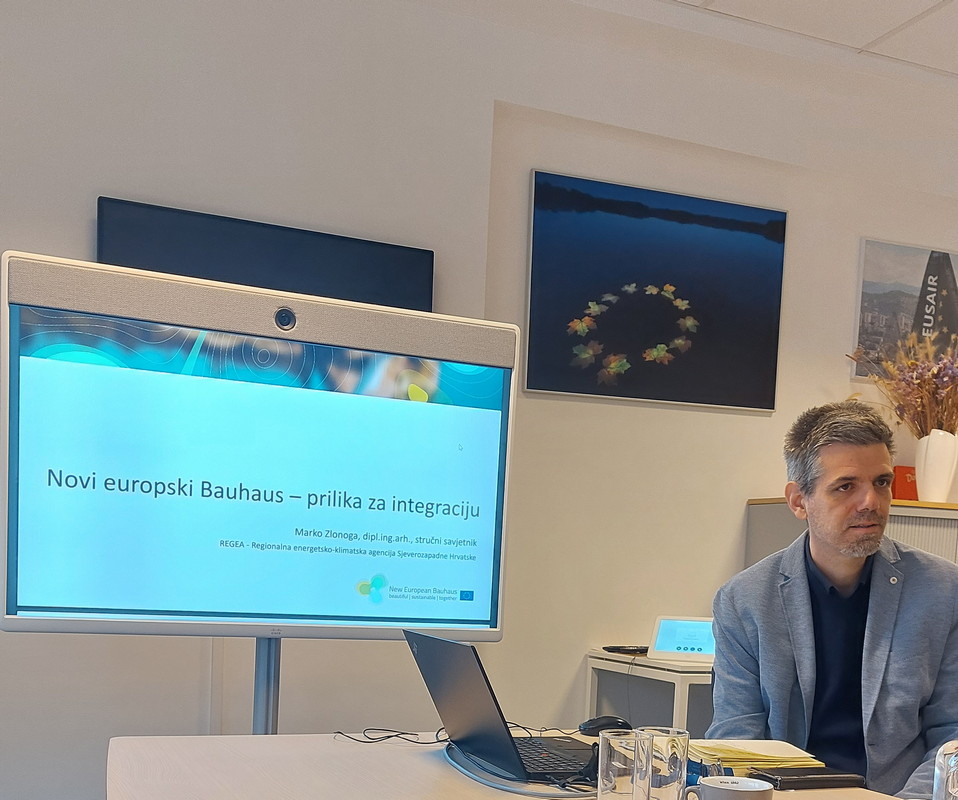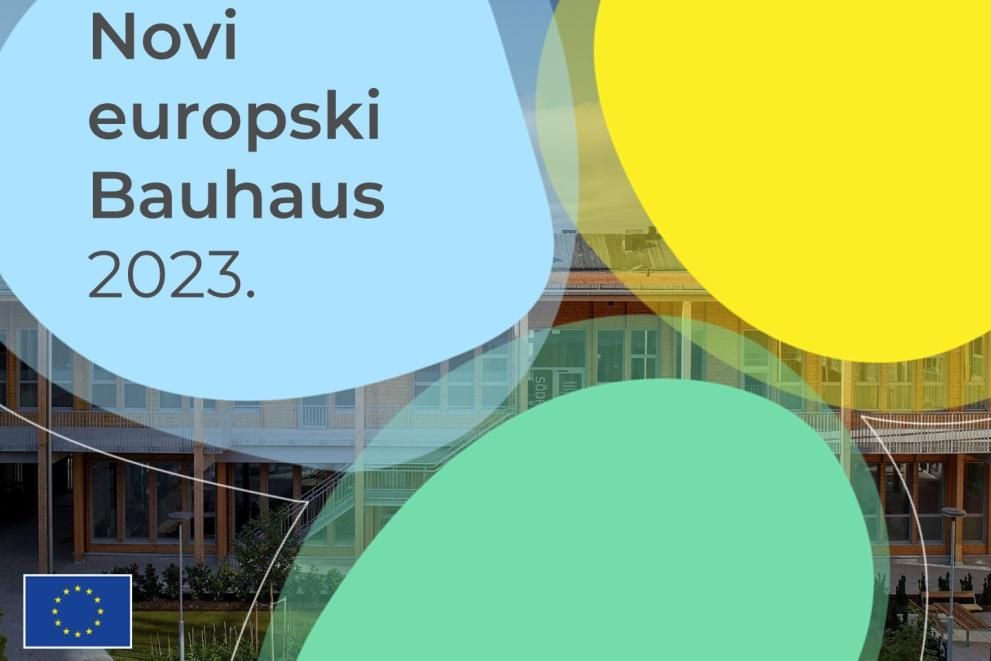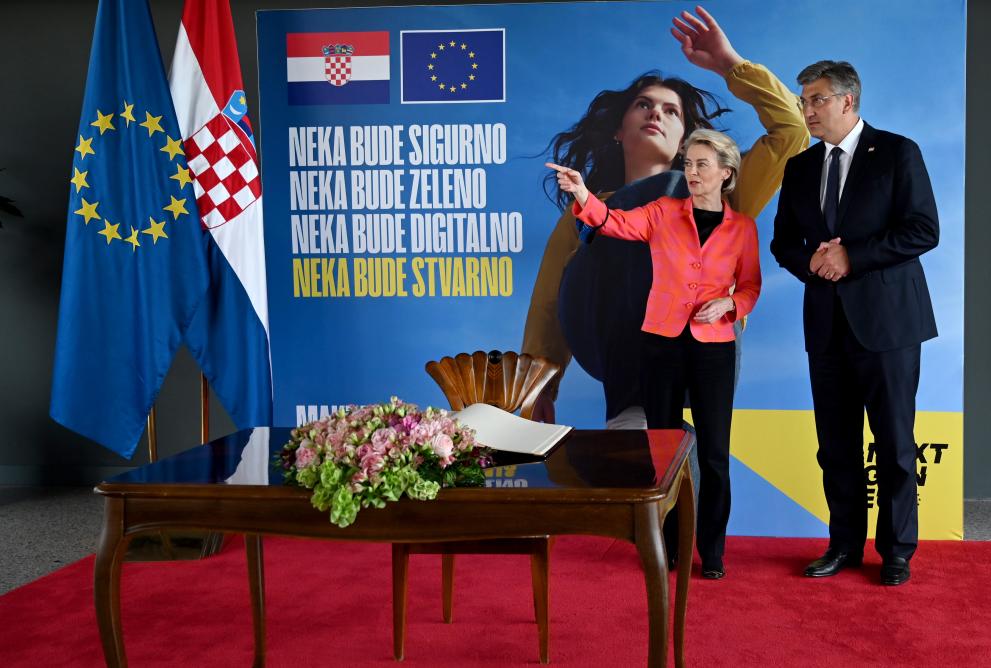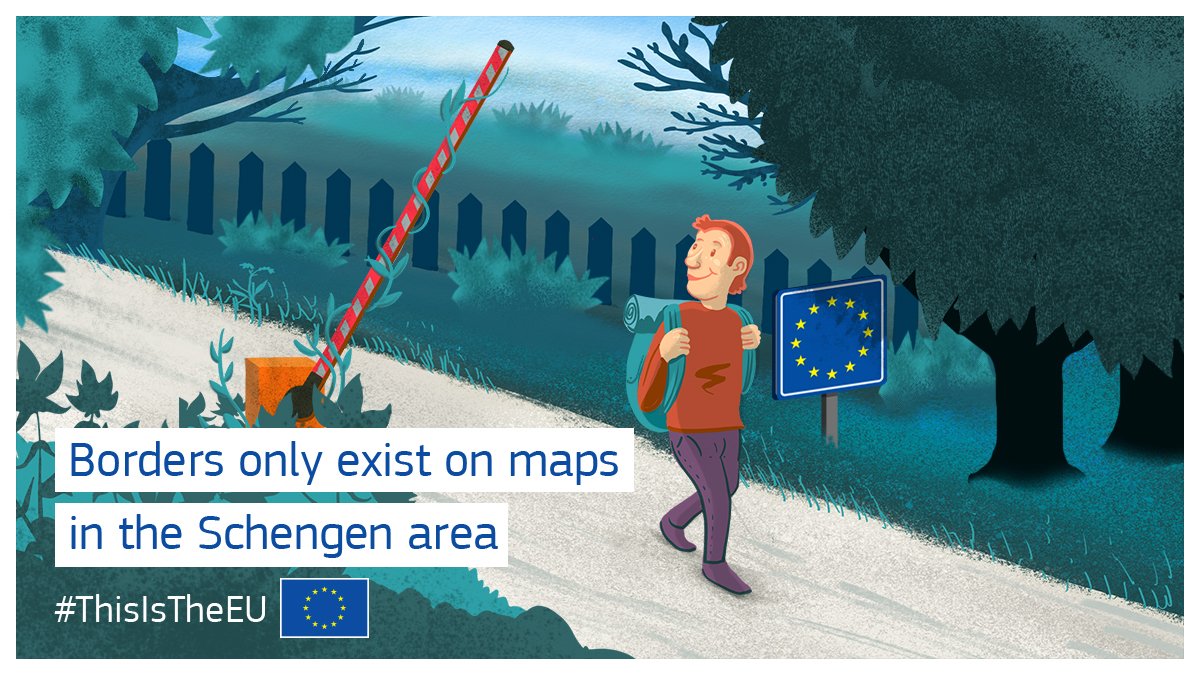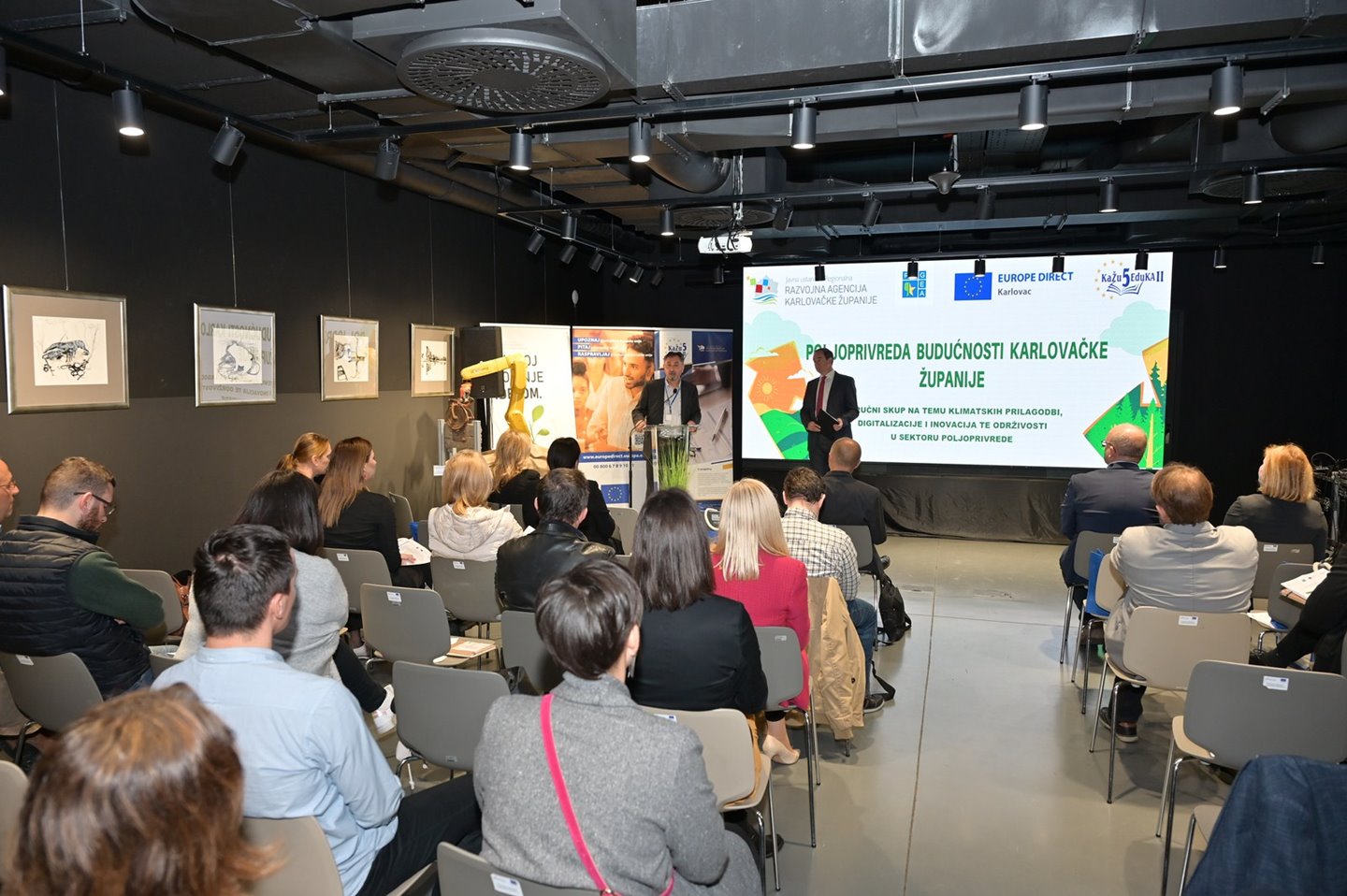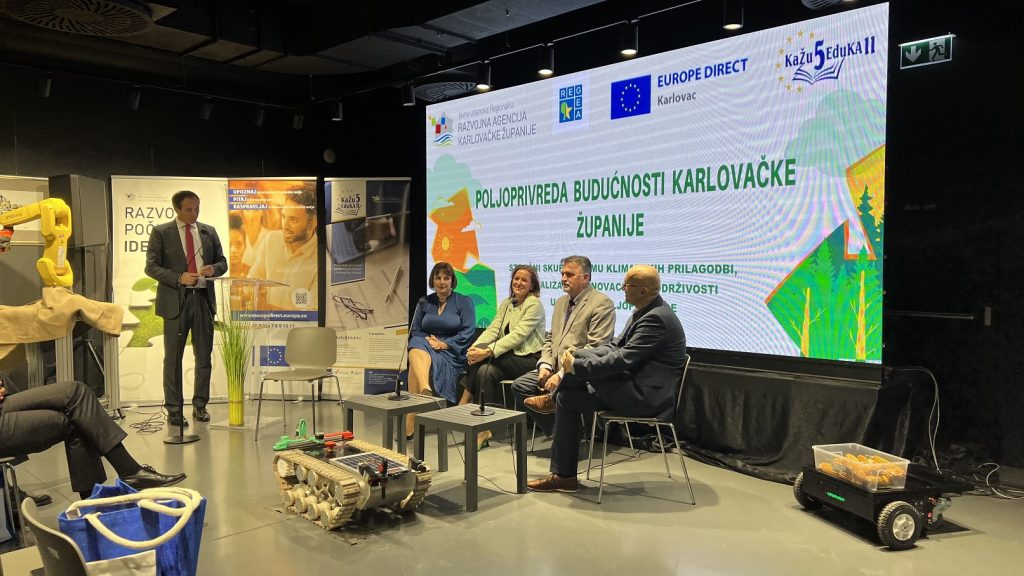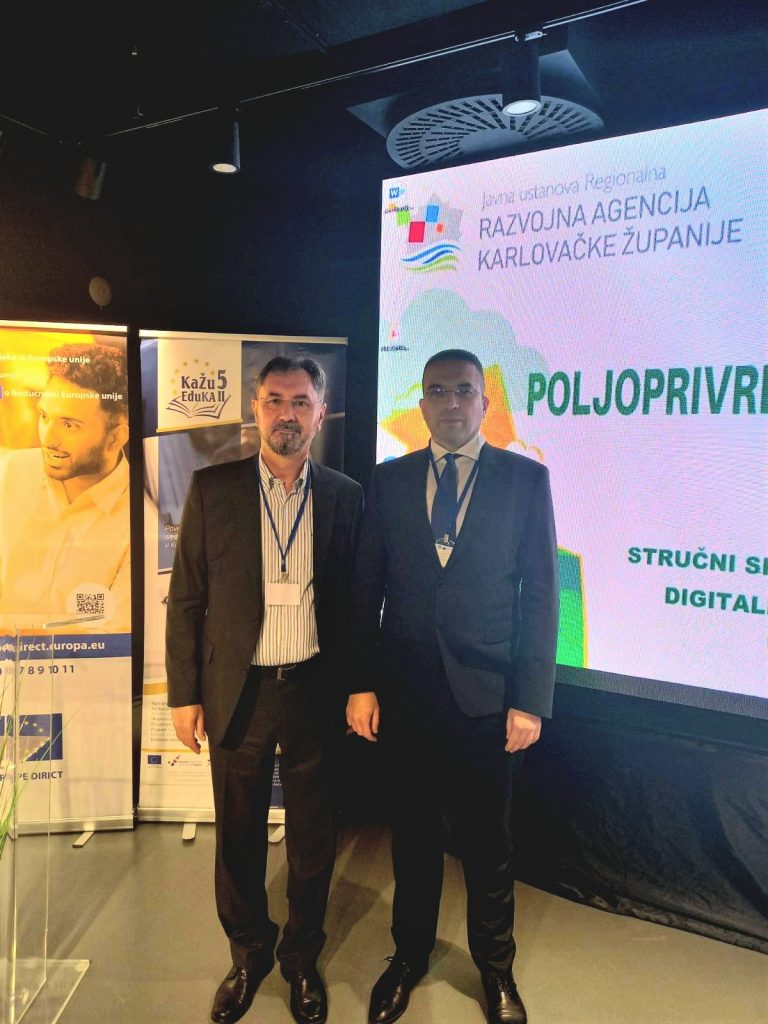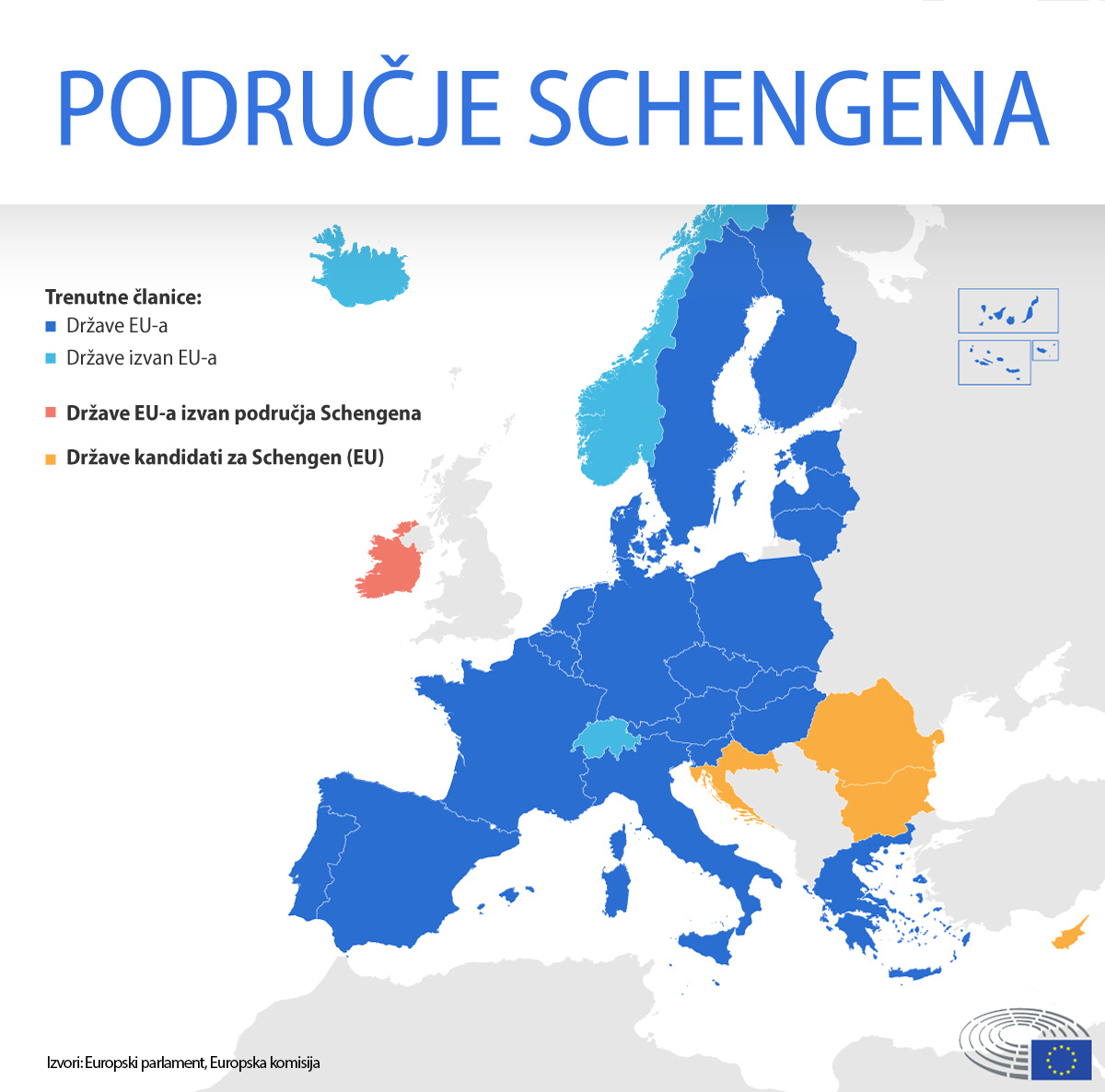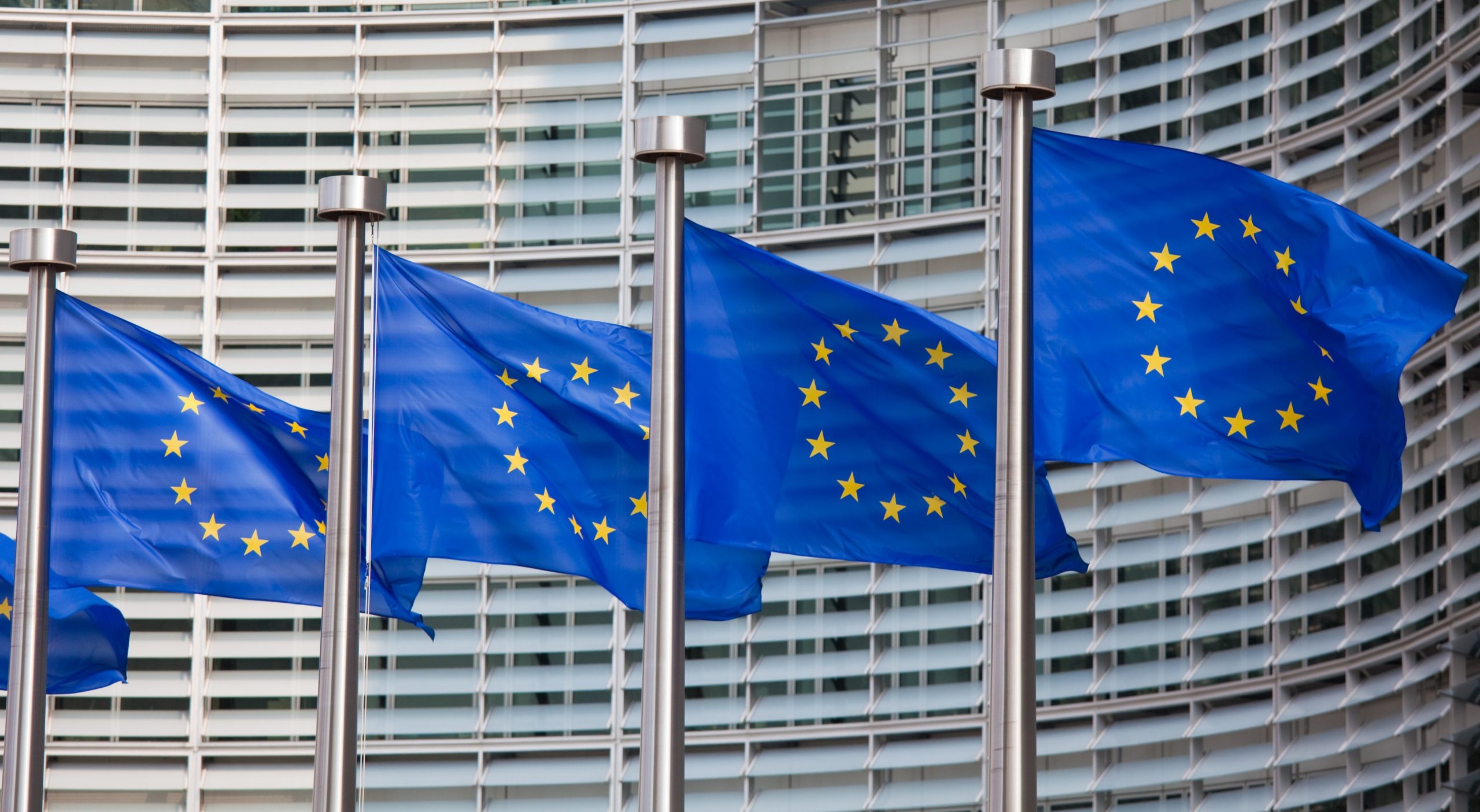The initiative has become a movement with a growing community from all EU Member States and beyond. With more than 600 official partner organisations ranging from networks at EU level to local initiatives, the New European Bauhaus reaches millions of citizens.
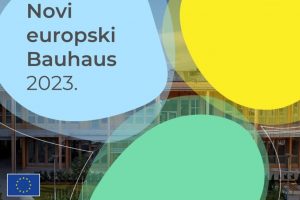
The Commission presents report on the New European New European Bauhaus,which analyses the achievements of the first two years of the initiative and the first assessment tool for the New European Bauhaus project, the New European Bauhaus New European Bauhaus CompassThe New European Bauhaus has created a broad community of organisations and citizens across Europe working on a shared vision of sustainability, inclusiveness and aesthetics. The main activities of the New European Bauhaus, including the New European Bauhaus Awards, the first festival and the New European Bauhaus laboratory, meet their goals and build a bottom-up transnational network. Small and large-scale New European Bauhaus projects are under way across Europe thanks to the already allocated European funds of over EUR 100 million. The Commission will only cover the period 2023. In 2024, add EUR 106 million to Horizon Europe’s dedicated funding.
The New European Bauhaus Movement
The initiative has grown into a movement with an active community that grows in all EU Member States and beyond.
The New European Bauhaus includes more than 600 official partner organisationsfrom networks at EU level to local initiatives, reaching millions of citizens. It brings together people from different backgrounds, from arts and design, cultural and creative industries and cultural heritage institutions to educators, scientists and innovators, businesses, local and regional authorities and citizens’ initiatives.
In addition, the New European Bauhaus has been an incentive and inspiration for local, regional and national actors to launch their own initiatives from the outset. To provide transparent access to information on dedicated calls for the New European Bauhaus, the Commission has created a New European Bauhaus browser for users and community membersi.e. a comprehensive database in the form of an interactive map.
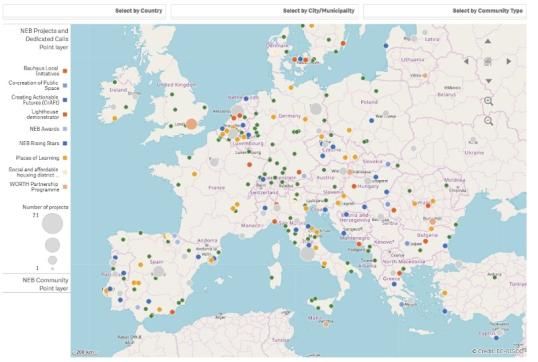
The New European Bauhaus Community is also active in Ukraine Its activities include helping to find emergency housing solutions and long-term renovation planning. The New European Bauhaus laboratory is carrying out three pilot projects (emergency housing solutions, circularity and capacity building) and analysed the needs of Ukrainian municipalities and their stakeholders (e.g. architects, urban planners, students and construction companies) for short- and long-term renovations. Building on the results of the pilot projects in the first quarter of 2023, a number of capacity building tools will be developed for Ukrainians, New European Bauhaus partners and international reconstruction experts.
Significant EU investment has already yielded results
Thanks to targeted funding from different EU programmes, the New European Bauhaus has started to bring real change on the ground The first New European Bauhaus demonstrationprojects, i.e. large-scale and transferable local transformation projects, were selected and started in 2022 and were funded under Horizon Europe. For 2023, a further 10 projects under European innovative cohesion policy measures are planned. Together with smaller projects across Europe in the period 2021-2030. In 2022, more than EUR 100 million was invested in New European Bauhaus projects supported by different MFF programmes.
All Member States have included in their cohesion policy programmes for the period 2021-2021. In 2027, references to the New European Bauhaus pave the way for the allocation of cohesion funding to projects inspired by it.
The New European Bauhaus compass as a landmark for project development and evaluation
Today, the Commission is also presenting New European Bauhaus Compassan evaluation tool to assess the extent to which the New European Bauhaus approach has been integrated into a given project. It explains what the three values of the New European Bauhaus — sustainability, inclusiveness and beauty — mean in a specific context and how they can be integrated and combined with working principles of participation and transdisciplinarity. Based on this compass, more detailed assessment tools will be developed, starting with the built environment.
The Next Steps
The Commission will also continue to work to include the New European Bauhaus in EU programmes, including under shared management in cohesion policy, and to increase funding for the initiative. More than EUR 106 million will be allocated to dedicated calls for proposals for the New European Bauhaus under the mission and cluster of Horizon Europe in 2023 and 2024.
In the context of the European Year of Skills of the New European Bauhaus Prize for 2023, it will be thematically focused on education and will cover Western Balkan countries in addition to the EU Member States. The New European Bauhaus Academy will also be established this year and training on sustainable construction, circularity and biomaterials will be carried out to accelerate the transformation of the sector.
Ongoing projects, such as the New European Bauhaus laboratorywill continue in order to mainstream the New European Bauhaus in all policies. One of its important tasks is to increase its presence in countries and regions, including rural areas, where so far there have been few such activities.
Thanks to the New European Bauhaus paths under the Discover EU initiativewhich is part of the Erasmus+ programme, young Europeans will soon have the opportunity to discover beautiful European landscapes and cities and get acquainted with the projects of the New European Bauhaus.
More information
New European Bauhaus website
New European Bauhaus page on LinkedIn
New European Bauhaus page on Instagram
